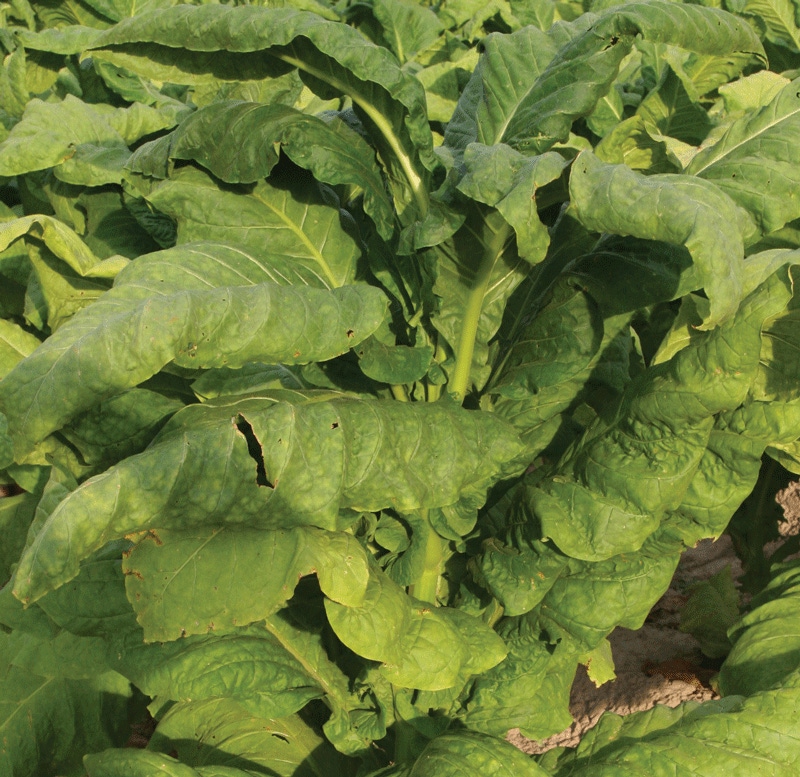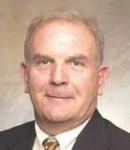September 1, 2011

Mergers and rumors of mergers have left some Southeast tobacco growers wondering about the availability and cost of seed for the 2012 growing season.
Much of the concern came from a recent announcement that GoldLeaf Seed Company would no longer be selling F.W. Rickard Seed. Both companies have long reputations for selling tobacco seed, but company officials say the changes in source of tobacco seed comes from basic business opportunities created by the merger of several tobacco industry companies.
Hartsville, S.C.,-based GoldLeaf seed has been a major distributor of Rickard and other brands of tobacco seed for the past decade.
Though the company won’t be selling Rickard seed in 2012, they will continue to supply tobacco growers with high quality seed, based on the tradition and seed heritage of Coker, McNair and Northrup King seed companies.
U.S. flue-cured tobacco growers will have a new direct source through distributors of high-quality tobacco seed for the 2012 crop season. F.W. Rickard Seeds will be distributing its flue-cured tobacco seed varieties through traditional distributors supplying farmers their inputs for growing tobacco.
“Rickard Seeds’ seed supply will be more than adequate and not affected by recent changes in the tobacco seed market, according to Todd Taylor, general manager of Winchester, Ky.-based F.W. Rickard Seeds.
“Tobacco growers concerned about the merger of tobacco companies shouldn’t be worried, and in fact will ultimately benefit from the merger of Rickard Seeds into Altria as result of the company’s acquisition of UST, Inc., in January 2009, Taylor says.
Though a part of the Altria family of companies, Rickard Seeds doesn��’t supply exclusively to Altria’s tobacco companies’ contract growers.
Altria’s Philip Morris USA (PM USA) and U.S. Smokeless Tobacco Co. (USSTC) subsidiaries buy tobacco through contracts with U.S. growers, but don’t require they use seed from Rickard Seeds, says Taylor.
“Though we do sell our seed through distributors to PM USA and USSTC contract growers, we are not limited to selling to these customers. The Altria acquisition has provided us the opportunity to leverage additional resources to develop new and improved varieties for growers.”
Rickard Seeds has been a stalwart in the burley and dark tobacco markets since its inception in 1937 and is the largest supplier of burley and dark tobacco seed in the U.S.
In 1997 Rickard Seeds began developing and selling hybrid flue-cured tobacco seed varieties. Taylor says,
“The take home message is that we have sold burley and dark tobacco seed for 75 years, so selling flue-cured seed is nothing new to us. All the distributors from whom growers have bought seed in the past will have equal access to our seed.”
Much of hoopla over the continuation of business as usual in the U.S. tobacco seed market came about by the announcement this year that GoldLeaf Seed Company would no longer sell Rickard Seeds’ flue-cured seed varieties.
Taylor says their business agreement with GoldLeaf Seed was ended because Rickard Seeds had a long history of selling seed in the burley and dark tobacco markets and simply decided to begin selling their varieties directly through other distributors and suppliers in the flue-cured market.
New variety released
The latest new variety from Rickard Seeds is NC 92, a new release from the North Carolina State University tobacco breeding program. It will be available for tobacco growers in 2012.
This new variety has moderate resistance to bacterial wilt and Race 1 black shank — an important improvement over the standard flue-cured variety, NC 71.
However, the two varieties have very similar growth and curing characteristics — with NC 71 still a popular choice, Taylor notes.
“Overall the seed outlook is good for tobacco for 2012. We have more than adequate supplies of all our varieties for flue-cured, burley and dark growers,” Taylor adds.
U.S. tobacco acreage was up slightly in 2011 and has remained stable at around 350,000 acres for the past few years.
In flue-cured tobacco, North Carolina continues to be the leading state in terms of production with an estimated 172,000 or 216,000 total acres planted in the U.S. in 2011.
Worldwide, China and Brazil are major players, having far surpassed the U.S. in tobacco production. Brazil and the U.S. have flip-flopped positions in the world tobacco arena over the past decade. Brazil now grows about 1.5 million acres of tobacco, about what the U.S. produced a decade ago.
China continues to be the world’s largest producer of tobacco and is rapidly becoming the world’s largest user of tobacco products. This is a trend that Taylor contends isn’t likely to change anytime soon.
“China grows about a third of the tobacco produced in the world and much of it is used internally — they essentially don’t export tobacco. In fact, over the past few years China has bought tobacco from U.S. growers, so rather than being competitors on the world market, China is a market for U.S.-grown tobacco,” Taylor says.
Higher than expected yields in Brazil this year put a damper on tobacco contracts for some U.S. growers. The intense battle for acres among the South’s traditional crops kept tobacco contracts high enough to sustain the domestic market, but not high enough to attract new production.
Though not likely to be a record crop, the 2011 U.S. tobacco crop in the Carolinas and Virginia is shaping up to be one of the most uniform crops in recent years.
Long-time Virginia Tech Tobacco Specialist David Reed says much of the tobacco he’s seen this year is ahead of last year’s crop and appears to be progressing with little damage from the heat and drought that has plagued many crops in the Region.
Speaking at a recent field day at the Pee Dee Agricultural Research and Extension Center in Florence, S.C., retired Clemson Tobacco Specialist Dewitt Gooden says the South Carolina crop has also fared well this year.
Taylor says he can’t predict the size of the 2012 crop, but contends there will be a good and stable supply of high quality seed from Rickard Seeds. The company’s seed availability will not be a factor in whether a farmer does or doesn’t grow tobacco next year, he concludes.
About the Author(s)
You May Also Like






